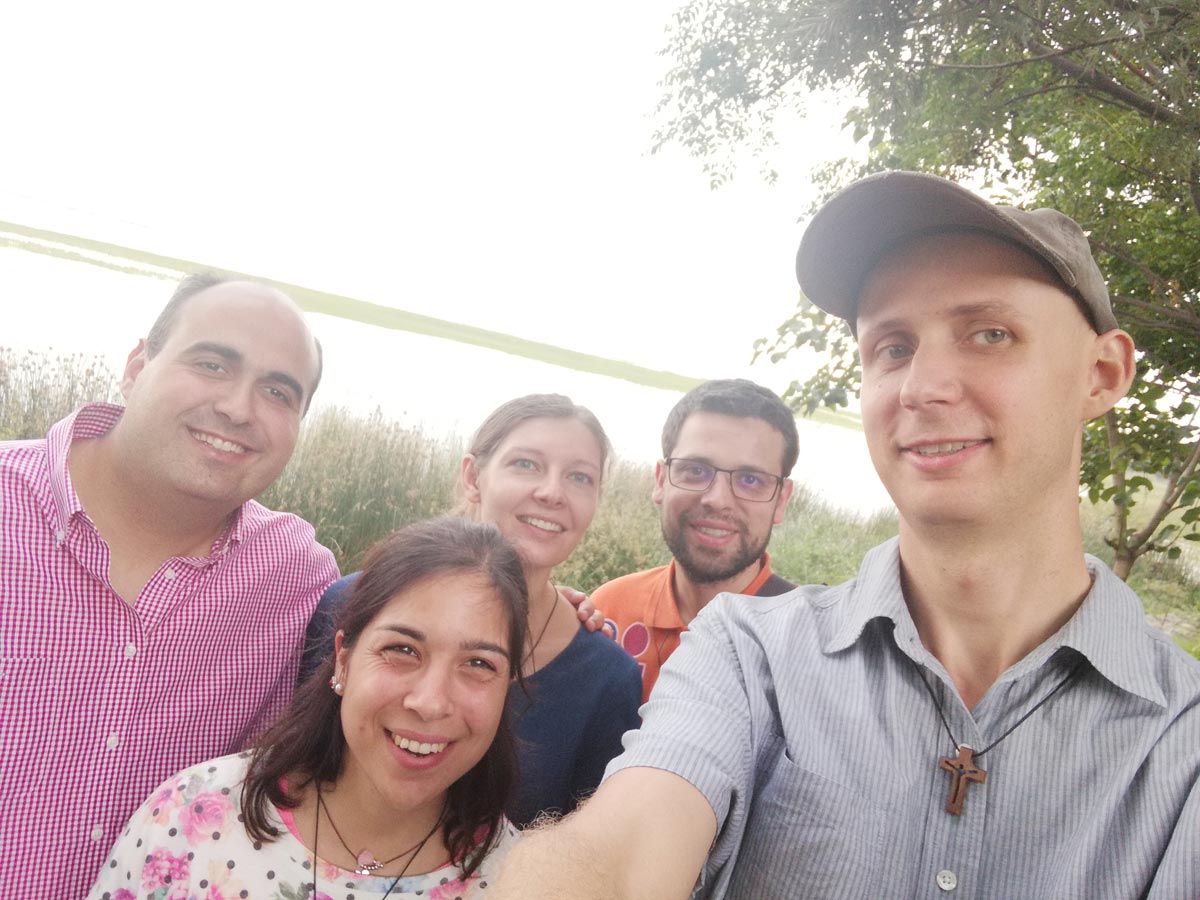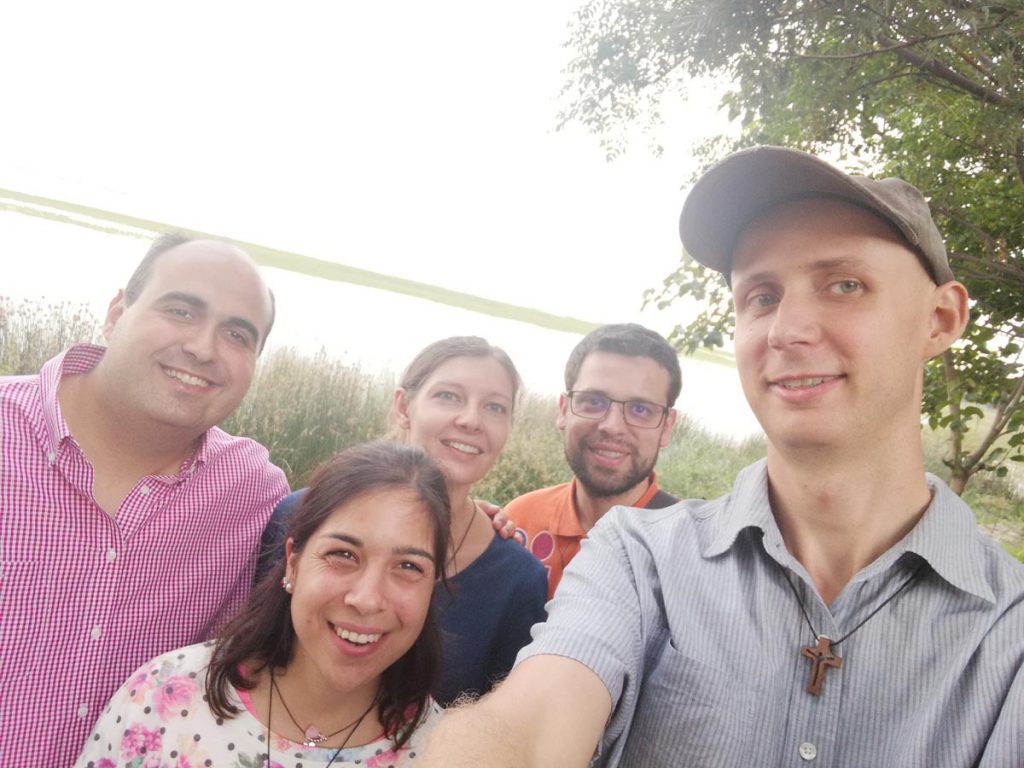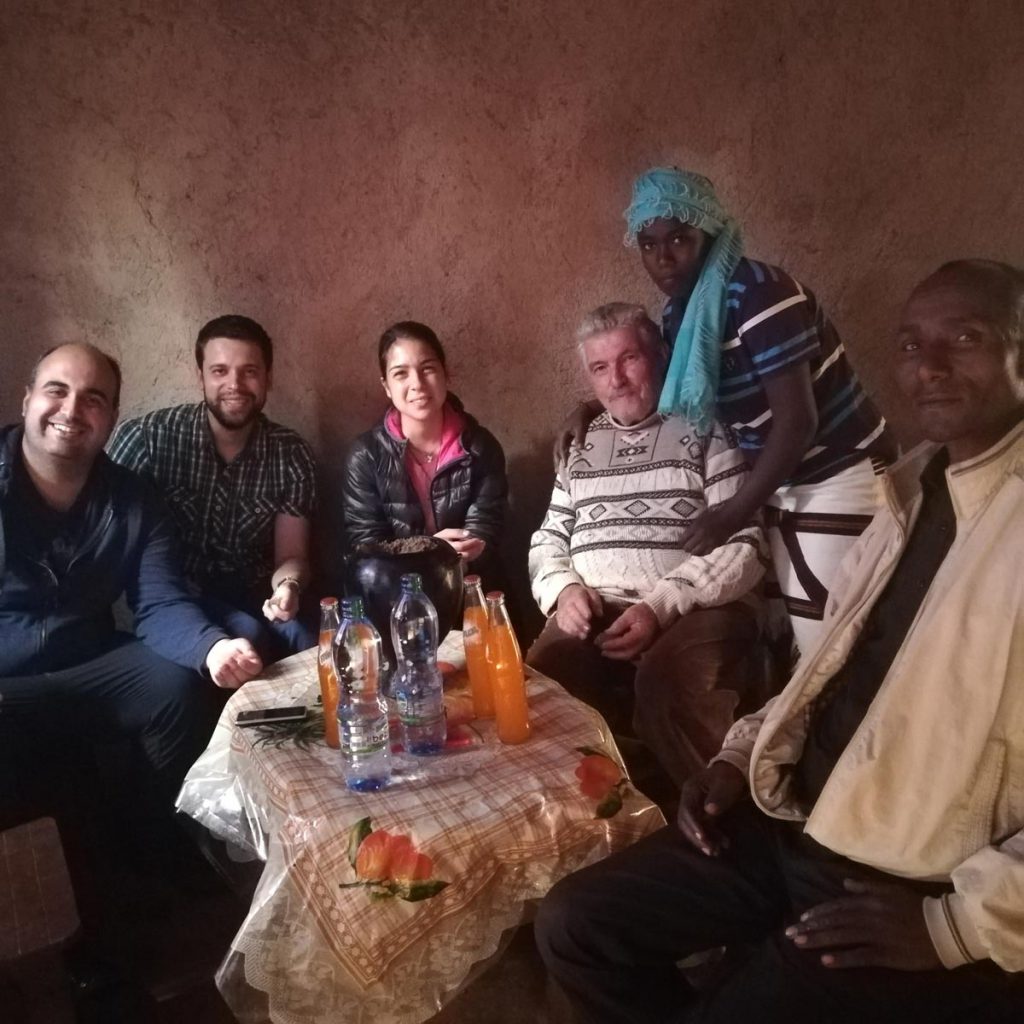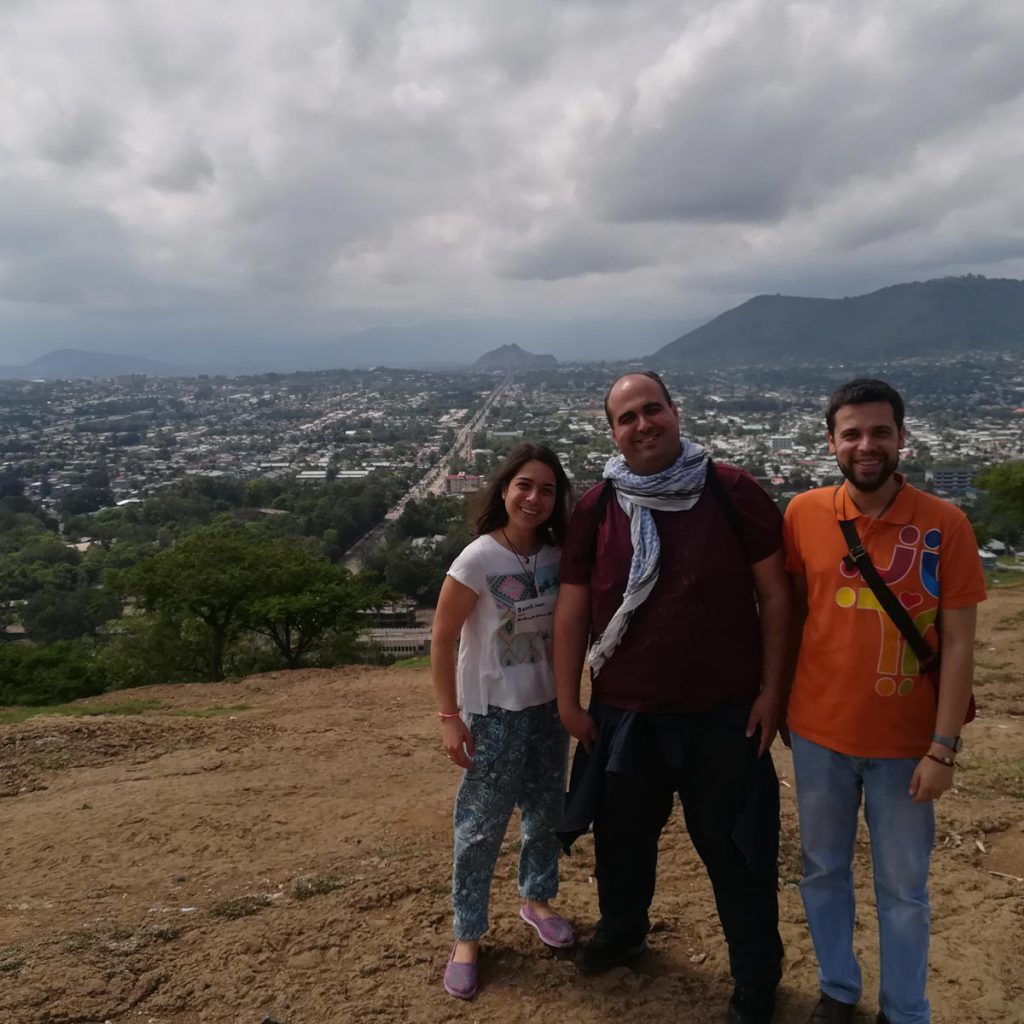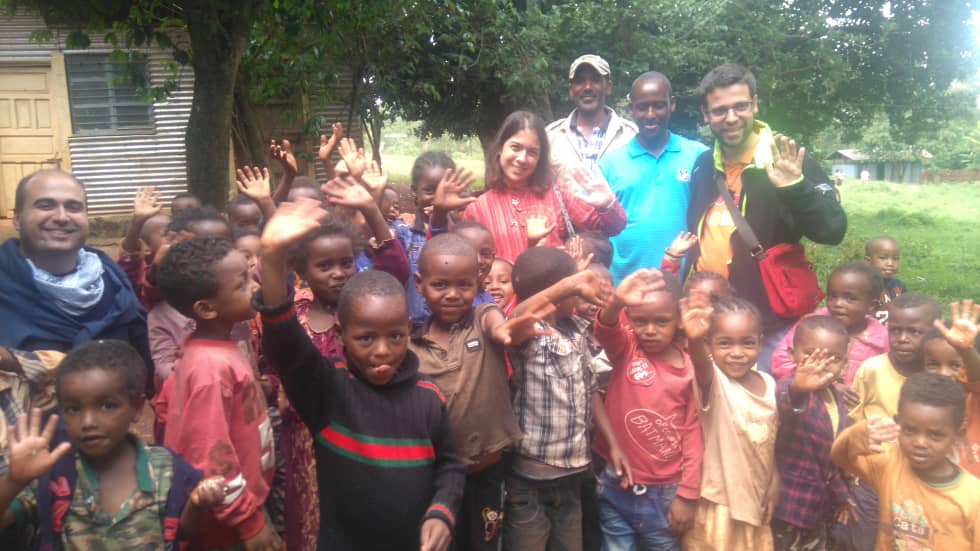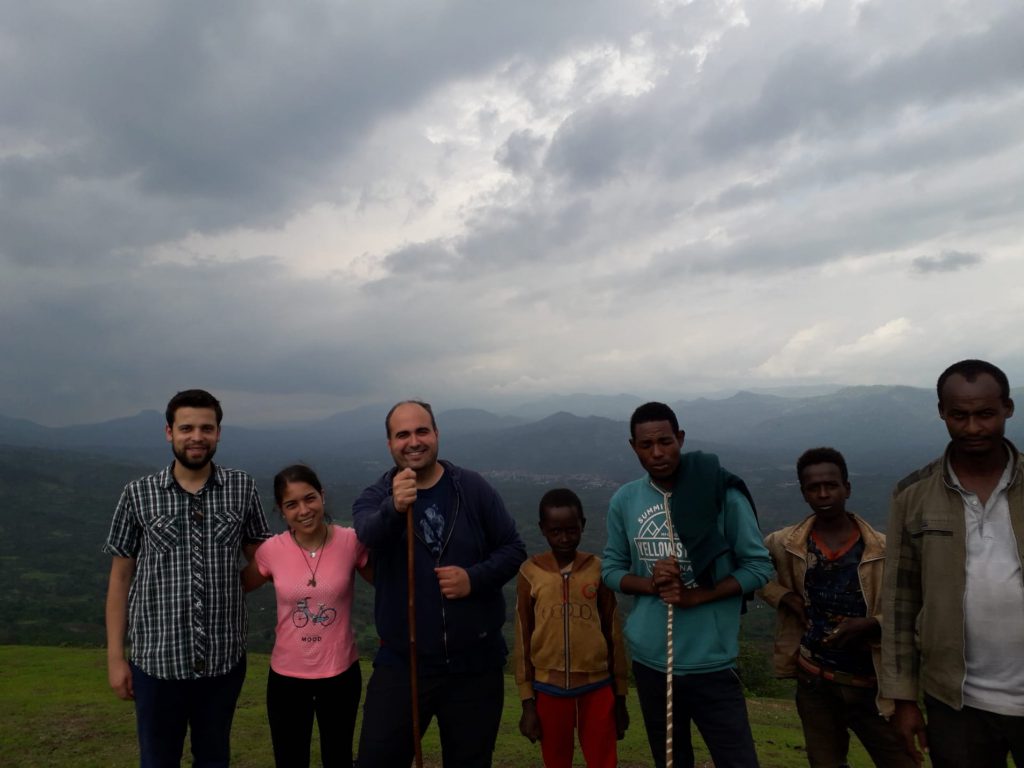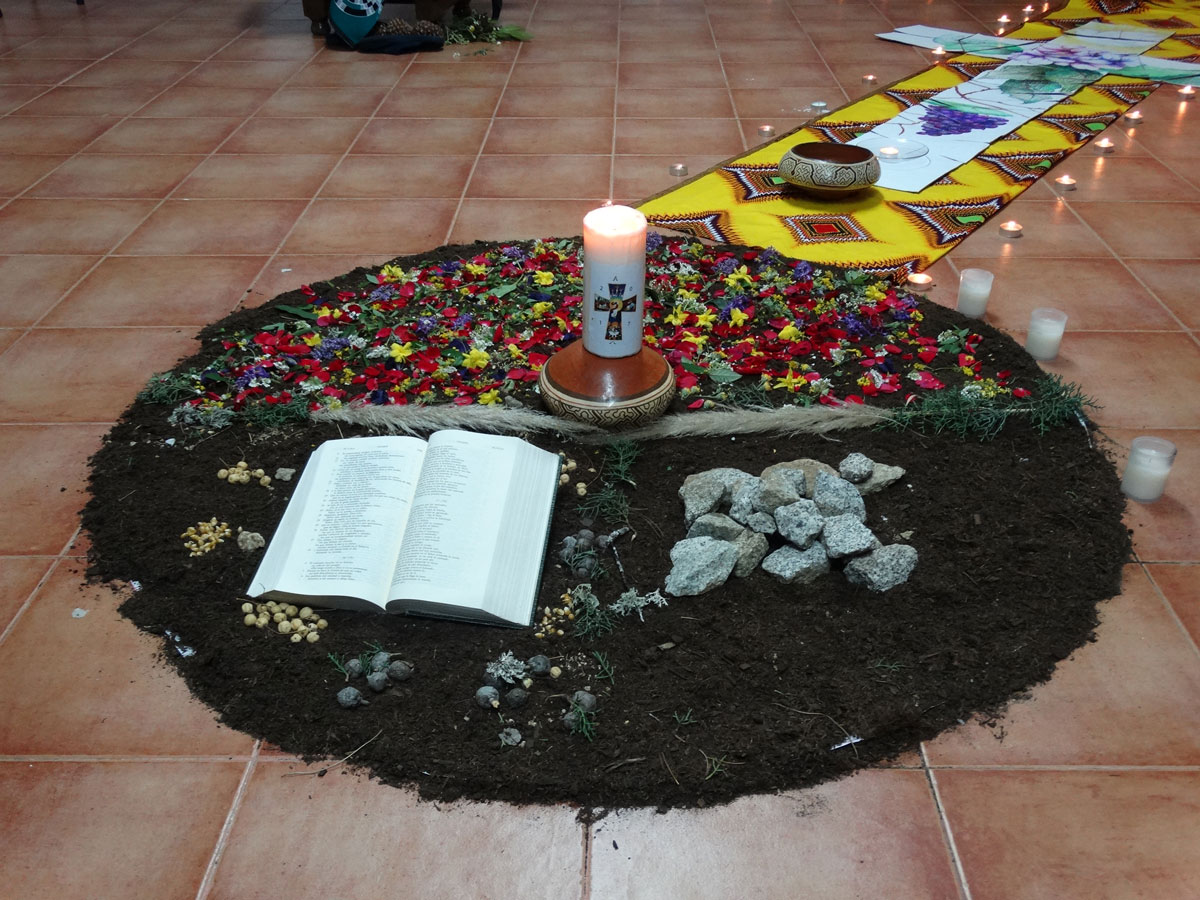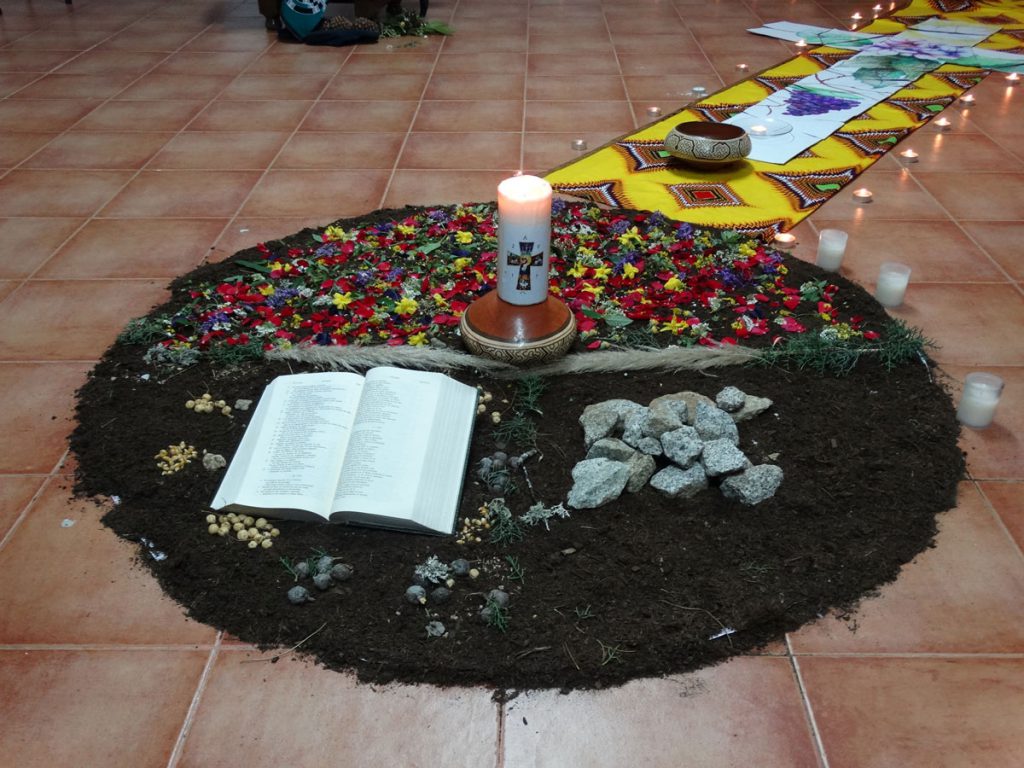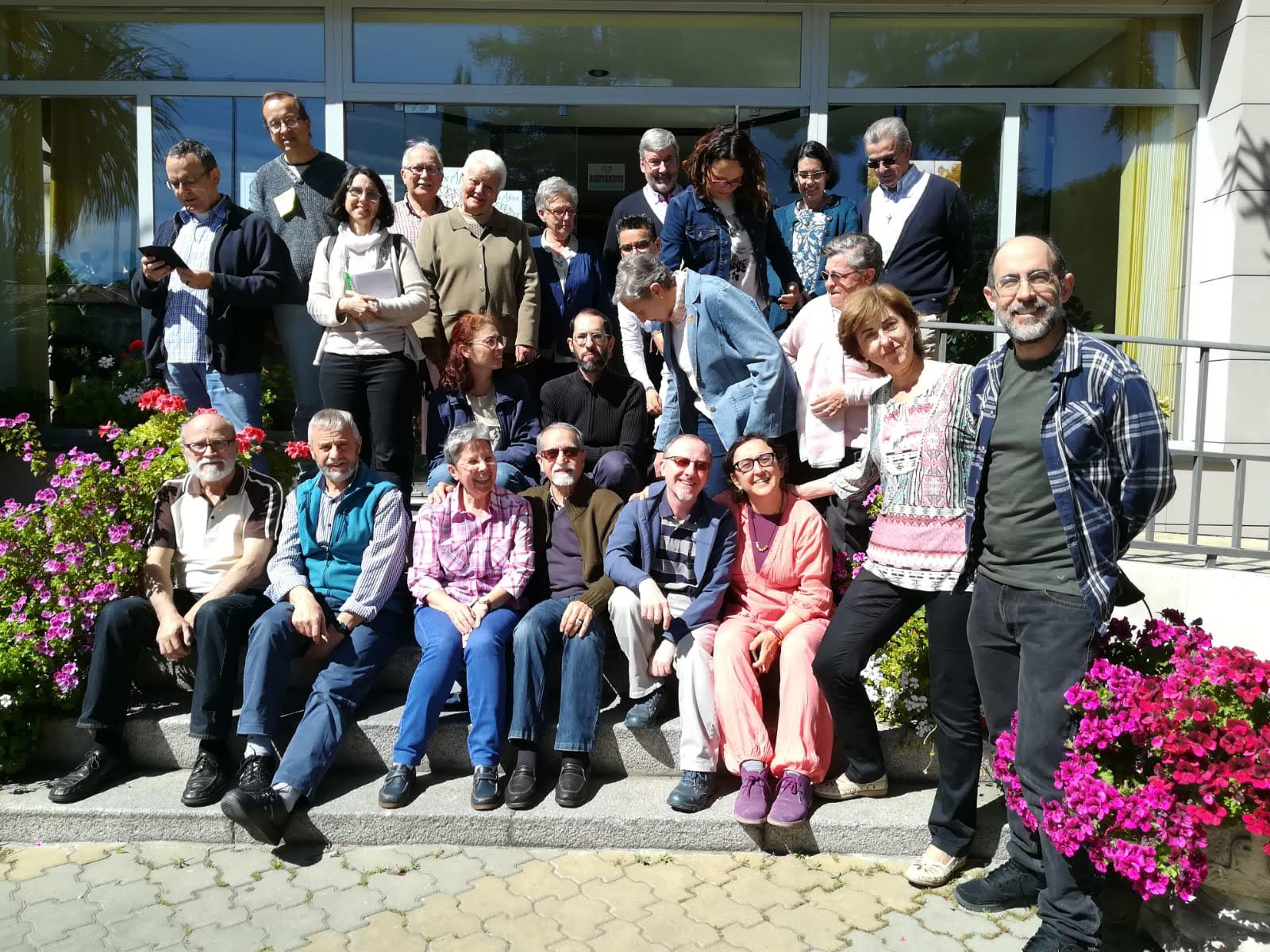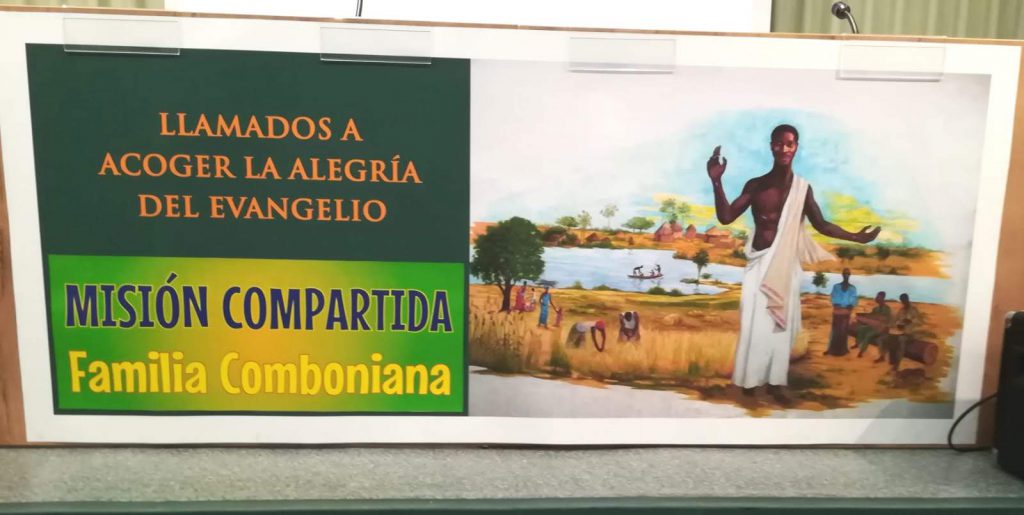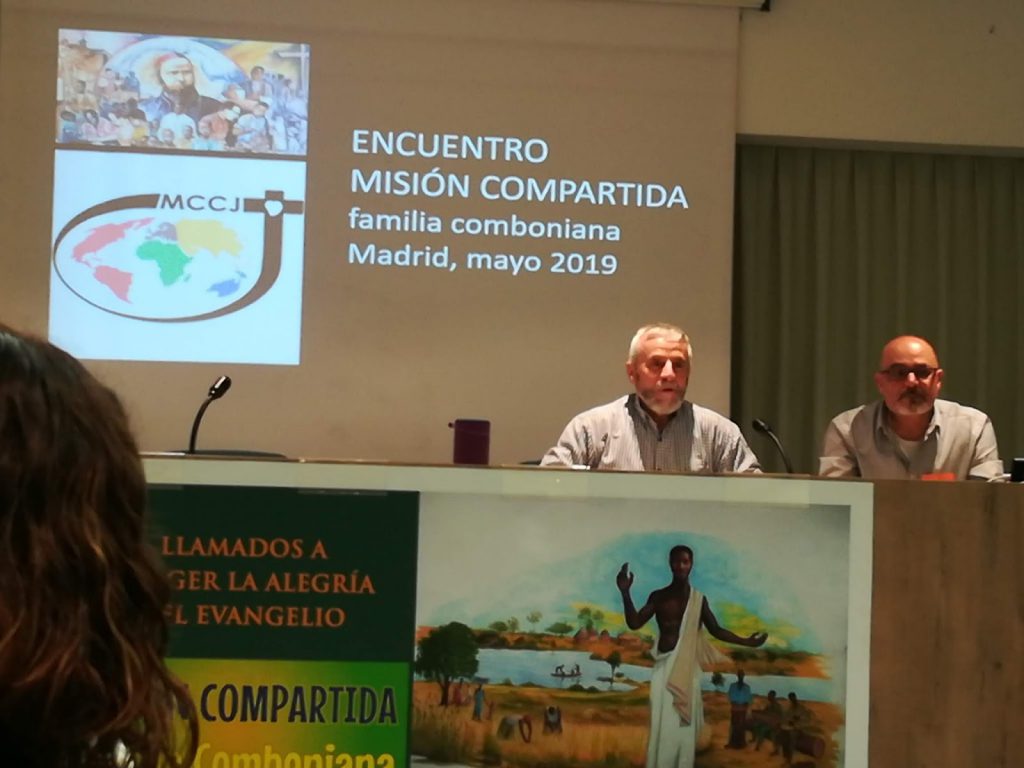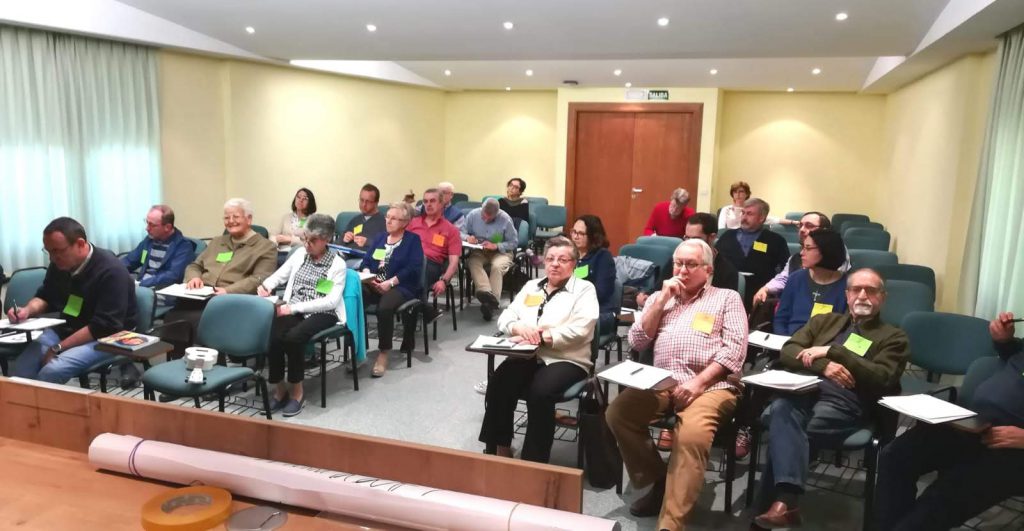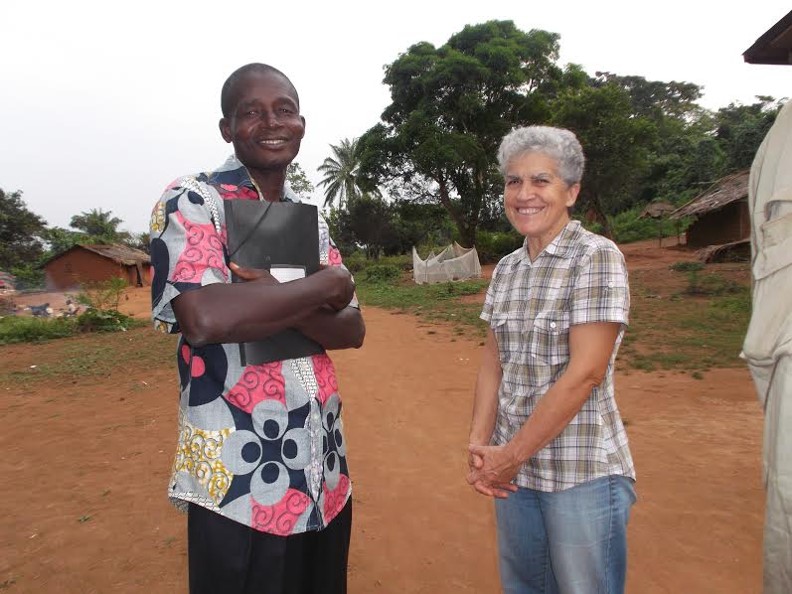We left back behind Qillenso, Adola and Daaye and what I saw during the journey, in this green that contrasts with everything I had seen so far since I arrived in this new place where God awaits every one of us, at least in the embrace of a prayer that, it cans travel from far away (I hope from your hearts). I take the duration of this trip to try to share (at least a grain) the wonders of this people that has received me so well.
We are in an unusual week. We take advantage of the fact that the Amharic classes will only start on June 3 (next week) to get to know the various missions of the MCCJ and also of the CLM (in Awassa) in the southern zone of Ethiopia.
Addis Ababa, is a city where pollution reigns, noise, the frenzy of the many cars and people who roam without rule through the streets. It could be seen in almost any European city if it were not for the disorder that governs here. Traveling by car is always an adventure, because the road here also belongs to animals and people (after all, the cars arrived later!). Among the several and crowded streets that exist here, the one more difficult for me to cross (until now) is the indescribable Mexico Square, point of reference for the arrival at home. Indescribable for not having words to express the pain it cause me when I see those bodies stretched out in the middle of the street, thin bodies, barely alive, some that do not see, others that have no feet to walk … Along with these bodies we can find many times the face of a child, whose lost eyes does not pass unnoticed. I imagine stories in my head that probably are his. They are malnourished mothers and their children. How it hurts to look and it hurts even more not knowing what to do!
This week’s trip through southern Ethiopia also allowed us to have a very different and colorful vision of this great and immense country. As we travel from Addis Ababa to Awassa, Qillenso, Adola and Daaye, the landscape changes its shapes and figures. If in Adis and Awassa there is a mantle of houses as far as the eye can see, in Qillenso, Adola and Daaye the earth is dressed in red and the green of the plants just born with the first rains. Along the way, houses are planted, with a rudimentary configuration but which are authentic works of art. The car passes and those who see us pass also look at us. I watch them also through the glass of the van. What a beautiful look! They always smile when they see us pass!
I am happy for the mission that God gave to the three of us and for which we ask for your prayers. The mission will never be ours. It is also yours. And above all, it’s God´s. Probably, and aware of this, we know that the mature fruits of this work only (and God willing) will be visible within a few years.
I’m fine! Feeling everything. The people, their looks, their words that I often do not understand, but I try to respond with a smile, or a look of tenderness, or using the few words I already know in Amharic. It has been a time to observe, hear, try to understand. It is also an advantage that I do not have a fluent level of English that allows me to talk a lot (and even less Amharic). I take advantage of that and I end up listening more, observing more. It’s time for that!
Our walking on the street is always a cause of looks. People look at us, as if we were something strange. For children it’s a party! They look at us and sketch daring smiles:
– Farengi! Farengi! Or China! China!
Don’t knowing what to do many times, we look at them and smile. We extend the arm and exchange a handshake. They’re all happy to touch us … it’s reciprocal!
One of these days, in Awassa, we visited the sisters of Mother Teresa, and the expected thing happened: the same reaction of the children who want to grab us … They run in our direction to touch our hands. But not just the hand. The arms, the face. They get closer, delighting in our heat. They run searching for love. And we try to give it to them. In the difficulty of not knowing much Amharic, I say the same all the times. I couldn’t limit myself to the same old words, I thought. I try to remember other things I can say, and there it comes out:
– Mndn new? (What is this?) – I ask pointing to my shirt.
– Makina (car) – several answer, each one in time.
I repeat the same question for other things, including the cross I bring to my chest.
And so they answer me. It’s a party for them! And for me. They do not know how much they teach me. I believe they are the best teachers I can have. They are happy with this little. As the one who is thirsty, like me.
I feel everything, even nostalgia. Great nostalgia! This also inhabits me, of course (I am Portuguese … of those very nostalgic)! As someone told me, nostalgia is the love that remains. Therefore, I always want this nostalgia to be part of me.
They have been beautiful days, full of novelty. Also within the community, with David and Pedro. In our differences, I see three pieces of a puzzle that come together and fit together. It is being beautiful as we realize what we are called to do here. We feel the weight of the responsibility of being starting to sow this grain that we want others to come to water, to reap, to harvest. The harvest here is great! But we feel a great strength of wanting to take steps. May the Holy Spirit enlighten us to take the right steps, in the right times and places.
Pray for us, for the mission and above all for this people that welcomes us and that seeks and fights for life, day by day.
With lots of love,
CLM Carolina Fiúza




